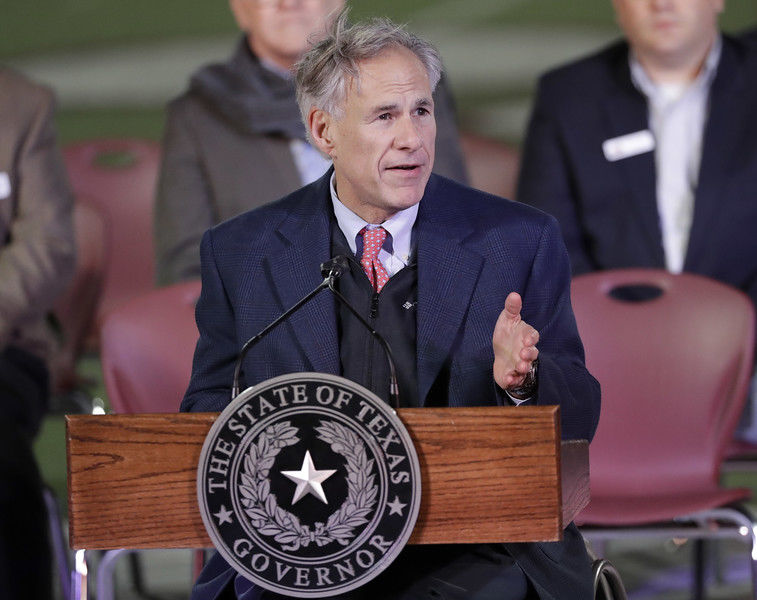Abbott tax proposal causes ‘head scratching’ in Tyler
Published 4:42 pm Tuesday, January 23, 2018

- Texas Governor Greg Abbott (Associated Press file photo)
A city official says a proposal by Gov. Greg Abbott to cap the growth rate of property taxes doesn’t make sense for Tyler.
City Manager Ed Broussard said he and his colleagues are doing a lot of “head scratching” because the plan to slow down spending would penalize the already fiscally conservative city.
Abbott’s proposal would bar local governments— including cities, counties and school districts— from raising property tax rates by more than 2.5 percent in a year without approval from two-thirds of voters.
That’s a dramatic change from current law, which allows local governments to set property tax rates, but allows voters to petition to force an election if the government seeks to increase revenues by 8 percent or more.
Abbott’s plan also would require two-thirds of voters to approve local governments’ new borrowing. On the flip side, the proposal also would stop state lawmakers in Austin from sending unfunded mandates to local governments.
Abbott announced the plan on Jan. 16, and the Texas Legislature is not scheduled to reconvene until 2019. Abbott has the ability to call a special session, but he has not announced an intention to do so. He is running for re-election on Nov. 6.
“Texans are fed up with property taxes being raised with impunity,” Abbott told the Texas Tribune when he announced his plan. “They are tired of endless government spending while honest, hardworking people struggle just to keep up with paying their tax bills.”
But Abbott’s proposal for slowing the growth in property taxes is falling on deaf ears in Tyler, which has the lowest tax rate in the region and one of the lowest in the state. The city is also the only one in the region that does not carry any general obligation debt — meaning any money it borrows does not depend on property taxes.
“We’re confused by the plan,” Broussard said. “There’s lots of head scratching going on because we don’t understand.”
Broussard said both Tyler and Smith County have been “very responsible” in keeping property taxes low. The tax rate in Tyler for the current fiscal year is 24 cents per $100 of assessed property value.
Abbott’s 2.5 percent cap would be based on each local government’s effective tax rate, which takes into account the actual appraised value of the city’s grand list. The effective tax rate is the rate the city would need to levy to receive the same amount of revenue as the previous year. In Tyler, the effective tax rate is usually slightly lower than the tax rate. This year, it’s 22.77 cents, according to Broussard.
If the city wanted to raise the tax rate another penny under the proposed plan, that would put the city well over Abbott’s proposed 2.5 percent limit and would require two-thirds of voters to approve it.
“Why keep putting down arbitrary rollback percentages?” Broussard asked of state officials. “Instead, tell us what you really want. If you want low taxes, then we’re the model for that. We are the example for the rest of the state.”
Tyler residents could face a similar conundrum for their taxes in Smith County, where the effective tax rate is about 32 cents per $100 of assessed property value. Voters can currently only petition for an election if the county seeks to raise the rate to about 36 cents per $100 of assessed property value, but Abbott’s proposal would lower that.
Smith County Judge Nathaniel Moran, who is the highest-ranking elected official for the county government, was not available for an interview. He issued a statement praising the part of Abbott’s proposal that would stop lawmakers in Austin from sending down unfunded mandates to local governments.
“I hope that the end result of the legislative process in 2019 on this issue will give property owners real tax relief, while preserving the principles of local control, protecting local governments from unfunded mandates, staying clear of the establishment of referendum budgeting, and comprehensively addressing the state deficit in public school financing.”
Broussard said he hopes lawmakers in Austin will listen to cities like Tyler, but he said local governments are not always part of the conversation.
“We truly hope that they’ll work with their cities and counties to come to answers together rather than having the mentality of, ‘Austin knows best,’” Broussard said. “The people in Tyler actually know quite a bit.”
TWITTER and INSTAGRAM: @_erinmansfield






